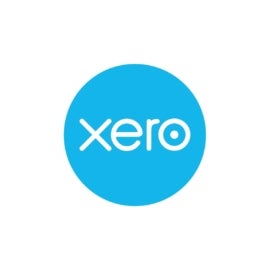QuickBooks Online: Fast facts [4.1 stars]Starting price: $30 per month Key features:
|
Intuit QuickBooks Online’s powerful, cloud-based accounting solution helps businesses of all sizes manage their finances. It’s one of the highest-rated and most popular bookkeeping software services — and for good reason. Few accounting software programs are as fully featured as QuickBooks Online, which lets users track expenses, reconcile bank accounts, generate critical financial reports and much more.
At $30 per month, Intuit QuickBooks Online has one of the highest starting prices of any accounting software. But if you can afford QuickBooks’ cost, its excellent features will help you keep your finances in line as you grow from startup to fully fledged enterprise.
Jump to:
QuickBooks Online’s pricing

Intuit QuickBooks Online has four plans that can accommodate small, midsize and large businesses. New users can choose between a 30-day free trial or a three-month 50% discount. If you choose the free trial, note that QuickBooks requires a credit card to sign up. Your card will be charged automatically once the trial ends unless you cancel in advance.
QuickBooks Online Simple Start
$30 per month
QuickBooks Online Simple Start is geared toward solopreneurs, sole proprietors, freelancers and other micro- and small-business owners. Its basic features include invoicing, online payment acceptance, 1099 contractor management and automatic sales channel syncing (for e-commerce business owners).
For an additional $50 per month, Simple Start users gain on-demand access to a live bookkeeper who can guide you through basic bookkeeping and accounting functions. QuickBooks Simple Start includes free guided setup, though this feature isn’t available for users who choose the free trial.
QuickBooks Online Essentials
$55 per month
QuickBooks Online Essentials costs an additional $25 per month, which adds features like bill management and time tracking. Unlike QuickBooks Simple Start, which includes access for one user and their accountant, Essentials allows you to add up to three users (plus your accountant).
QuickBooks Online Plus
$85 per month
QuickBooks Online Plus adds essential business tools like inventory tracking and project management. It also increases the number of users you can add to five.
QuickBooks Online Advanced
$200 per month
QuickBooks Online Advanced is more than double the cost of QuickBooks Online Plus, which can make it an expensive jump for midsize businesses seeking to scale up. Still, the plan is extremely comprehensive and includes employee expense tracking, batch invoicing and 25 users. Advanced is the only QuickBooks plan to include free 24/7 customer service.
Additional QuickBooks accounting and payroll products
QuickBooks has an accounting tool specifically for freelancers called QuickBooks Online Self-Employed, which starts at $15 a month. QuickBooks Self-Employed tackles basic freelance bookkeeping features like expense tracking, receipt uploading, tax categorizing, quarterly tax estimating and mileage tracking.
While QuickBooks Self-Employed is a passable income-tracking and invoicing app for the self-employed, it’s pricier than other freelance-friendly accounting tools like Wave Accounting and Xero.
QuickBooks Online also syncs with a variety of payroll tools, including the accountant-friendly QuickBooks Online Payroll. While QuickBooks Online users don’t get a discount when signing up for QuickBooks Payroll, the two software products integrate seamlessly with one another and are equally easy to use.
QuickBooks Payroll starts at $45 a month plus $5 per employee paid per month, and new users can choose between a 30-day free trial or 50% off discount just as they can with QuickBooks Online.
Finally, QuickBooks Desktop is a desktop-based alternative to the cloud-based QuickBooks Online. However, Intuit pushes new users to choose QuickBooks Online over QuickBooks Desktop — although QuickBooks Desktop hasn’t yet been phased out, Intuit offers fewer desktop-based plans year over year. Additionally, price-wise, more business owners can afford cloud-based accounting: QuickBooks Desktop Enterprise starts at $2,250 per year.
QuickBooks Online’s key features
Invoices, estimates and quotes
QuickBooks users can create customizable invoices, estimates and quotes from both the mobile app and browser interface. Via QuickBooks Payments, which is included free (apart from industry-standard transaction fees) with each plan, users can also configure invoices to accept online bank transfers and credit card payments.
Unlike Xero, which limits the number of invoices users can send each month, and FreshBooks, which limits the number of clients users can invoice each month, QuickBooks’ plans let users send an unlimited number of invoices to an unlimited number of clients. QuickBooks Online customers can also set up automatic recurring invoices, send invoice reminders and accept tips via the invoice, though only QuickBooks Online Advanced customers can send batched invoices.
Automatic income and expense tracking
Once you sync your bank accounts and business credit cards with your QuickBooks Online account, the software will automatically import transactions to analyze how much money you have in the bank, showcase where your cash is going and help you determine what your biggest expenses are. Through the QuickBooks app, you can snap receipts and upload expenses, which are then automatically sorted into tax categories for easier end-of-year tax deductions.
Bookkeeping and accounting reports
QuickBooks offers more — and better — reports than nearly any other accounting software provider. With the Simple Start plan, QuickBooks’ software will generate cash flow statements, income statements and balance sheets. Users can also use it to create customized tags and reports that help you hone in on specific income and expense trends and up your business’s cash flow. Higher-tier plans include more thorough reports and in-depth insights, including profitability reports, extended forecasting and inventory reports.
Cash flow forecasting
As an accounting program, QuickBooks Online helps you track your finances while giving you clear insights that can guide your most crucial business decisions. To that end, each QuickBooks Online plan includes cash flow forecasting. From the dashboard, a cash flow formatting snapshot shows you both where your business stands now and where it likely will stand financially several months to a year down the road.
Sales channel connections
Sales channel connections are among QuickBooks Online’s newest features. E-commerce sellers can link their Etsy, Amazon and eBay accounts directly to QuickBooks’ accounting software for easier e-commerce sales tracking. The number of sales channels you can connect is limited by plan: Simple Start users can link one sales channel while Advanced users can link an unlimited number of channels.
Inventory management
QuickBooks Online’s two higher-tier plans include basic inventory management. While QuickBooks’ inventory management software isn’t the most advanced inventory option out there, it’s perfectly functional. Plus, Quickbooks’ thorough integration library ensures users can find inventory tracking software that both meets their needs and integrates with their accounting software.
Integrations
QuickBooks Online syncs with more than 750 different third-party business apps, ranging from point-of-sale apps to payment acceptance tools and beyond. Naturally, QuickBooks Online syncs with other QuickBooks products as well, including QuickBooks Time (formerly TimeTrex), TurboTax and QuickBooks Online Payroll.
QuickBooks Online’s pros
- Extensive accounting features for all business sizes.
- Well-reviewed iOS and Android apps (4.7 stars and 3.9 stars, respectively, at the time of writing).
- No invoice, client or bill payment limits.
- True double-entry accounting with every plan.
- User-friendly software made specifically for non-accountant business owners.
- Free live setup with every plan (not included with free trial).
QuickBooks Online’s cons
- Much higher starting prices than top QuickBooks competitors.
- Generally poor customer service reviews.
- 24/7 customer support limited to highest-tier plan.
- Users limited by plan.
Top QuickBooks Online alternatives
Zoho Books
Starting price: $0

Zoho Books has six accounting plans, ranging from its free plan for microbusinesses making less than $50K USD to its hefty, enterprise-specific accounting plan ($240 per month). Zoho might be the only accounting software to compete with QuickBooks Online in terms of sheer features: Even its free plan includes multi-lingual invoicing, journal entries and 1099 contractor management.
Zoho’s pricier plans include advanced features like sales and purchase orders, recurring bill payments, a collaborative vendor portal and enhanced metrics. While Zoho Books syncs with a fair range of third-party business apps, its primary integrations are with other Zoho products (for instance, Zoho Projects for project management or Zoho Payroll for payroll).
Xero
Starting price: $13 per month

In stark contrast to QuickBooks Online, each Xero accounting plan includes basic inventory management and an unlimited number of users. Xero’s software is easily as user friendly as QuickBooks’ with a colorful, organized dashboard and highly reviewed apps for iOS and Android. It also has better customer service reviews than Intuit, even though Xero’s customer service is available via email only.
However, Xero has some limitations that QuickBooks lacks. For one thing, it limits the number of invoices its customers can send each month to 20 with the cheapest plan. The lowest-tier plan users are also limited to managing just five bills a month and creating 20 estimates a month.
FreshBooks
Starting price: $15 per month

Like QuickBooks Online, FreshBooks excels at offering professional, customizable invoices that are easy to draw up both online and via the mobile accounting app. Its well-organized dashboard includes a client portal business owners can use to collaborate with their customers on generating quotes, approving estimates, creating invoices and accepting payments.
FreshBooks does impose some limits that QuickBooks doesn’t. While customers aren’t limited to sending a certain number of invoices each month, they can only invoice a certain number of customers with each plan. (For instance, FreshBooks’ cheapest plan lets users invoice five clients per month.) Unlike QuickBooks, Xero and most other accounting software, FreshBooks doesn’t offer true double-entry accounting with its cheapest plan.
Our methodology
To review QuickBooks Online, we set up a free online account with a demo business so we could test the software for ourselves. We also carefully read through individual user reviews on sites like Gartner Peer Insights and Trustpilot to ensure we wrote a balanced, fair review that took multiple perspectives into account.
Star ratings
We use an internal algorithm to standardize our reviews and calculate our star ratings for each brand. Our score for QuickBooks Online breaks down as follows:
- Pricing (weighted to 25% of the total score): 3 stars out of 5.
- Features (weighted to 35% of the total score): 4.7 stars out of 5.
- Ease of use (weighted to 15% of the total score): 4.5 stars out of 5.
- Customer service (weighted to 15% of the total score): 4 stars out of 5.
Our expert’s hands-on experience and perspective made up the final 10% of our total weighted score.
Source of Article



